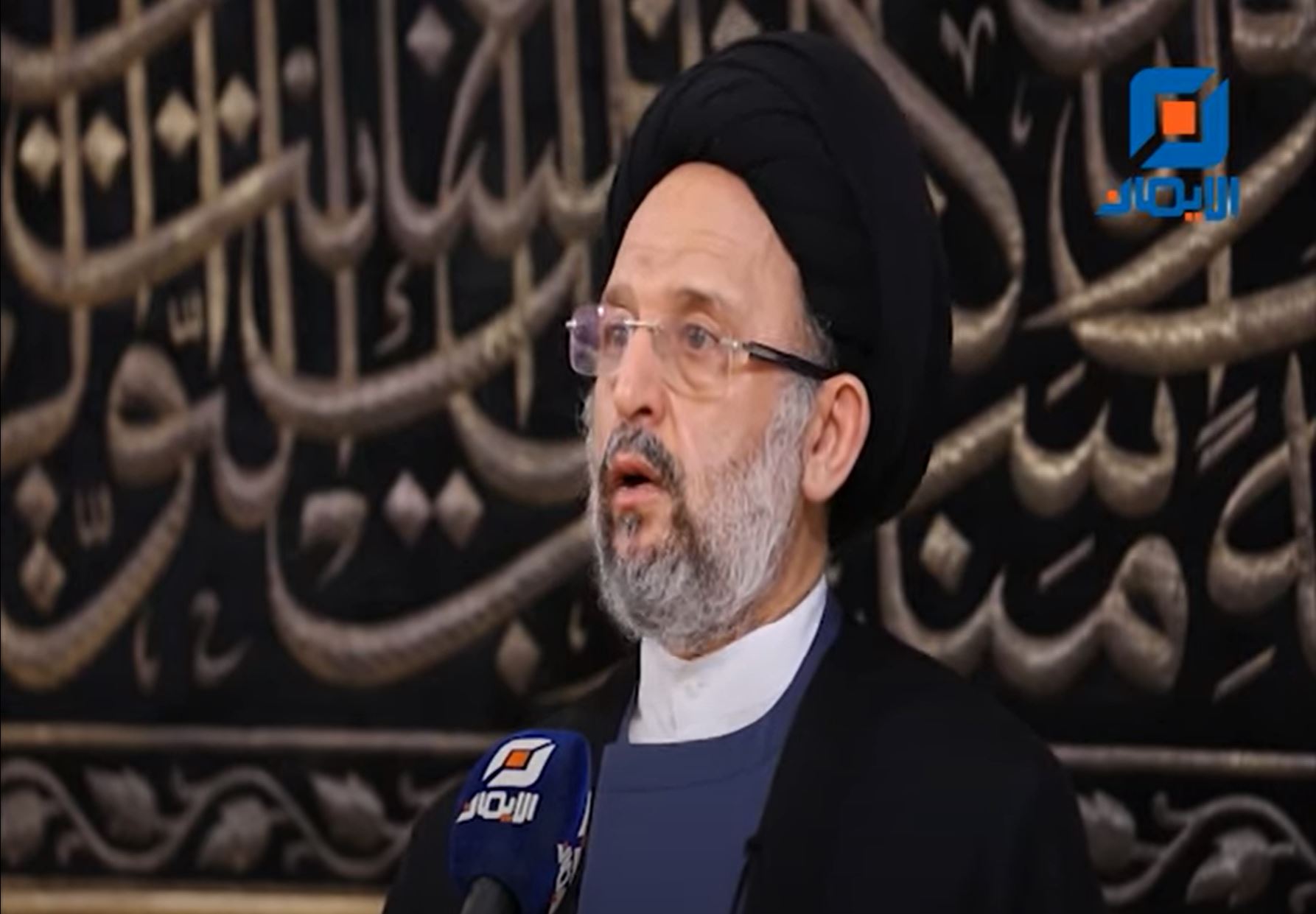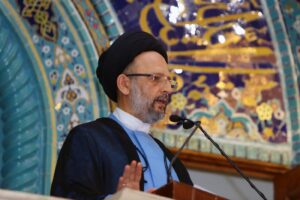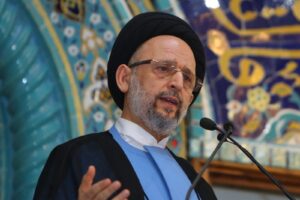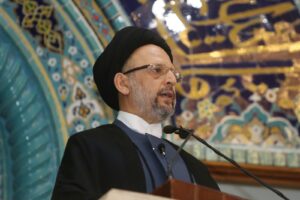Lessons of the Quranic stories
In The Name of Allah, The Compassionate, The Merciful.
His Eminence, Sayyed Ali Fadlullah, delivered in the context of the Friday Talk, a religious speech on Shaban 24, 1441 H. /April 17, 2020. Following is an edited text of his talk :
There was certainly in their stories a lesson for those of understanding. Never was the Qur’an a narration invented, but a confirmation of what was before it and a detailed explanation of all things and guidance and mercy for a people who believe.
Allah, the Most Exalted says the truth.
Today we are going to talk about one of these stories that might be strange in it is events. It is the story that was narrated in the Kahf (The Cave) Surah. The story talks about Prophet Mousa(Mosses) and a man of God whom the Quran did not mention his name but only his attributes:
And they found a servant from among Our servants to whom we had given mercy from us and had taught him from Us a [certain] knowledge. And these attributes qualified him for the status he reached. Nevertheless, traditions have pointed out that he was Al-Khdir (The Green One) who was called as such because wherever he went the land turned green.
The story began when Allah told Mosses(p.) to go to Mujama Al-Bahrain (Where the two seas meet)to meet Al-Khdir . There, Mosses asked Al-Khidr to accompany him, so as to learn from him :Moses said to him, “May I follow you on [the condition] that you teach me from what you have been taught of sound judgement. Imagine this: One of Allah, The Most Exalted’s prophets who talked to God asks for permission to learn and promises to be a good and disciplined student. Al-Khidr welcomed Mosses , but he was canid with him right from the beginning:
He said, “Indeed, with me you will never be able to have patience. You will witness strange things that you will not have patience on. Thus you will have to be patient and I will tell you about them at the right time. And how can you have patience for what you do not encompass in knowledge?”
[Moses] said, “You will find me, if Allah wills, patient, and I will not disobey you in [any] order.”
He said, “Then if you follow me, do not ask me about anything until I make to you about it mention.”
So they set out, until when they had embarked on the ship, al-Khidhr tore it open. [Moses] said, “Have you torn it open to drown its people? You have certainly done a grave thing.”
[Al-Khidh r] said, “Did I not say that with me you would never be able to have patience?
[Moses] said, “Do not blame me for what I forgot and do not cover me in my matter with difficulty.”
So they set out, until when they met a boy, al-Khidhr killed him. [Moses] said, “Have you killed a pure soul for other than [having killed] a soul? You have certainly done a deplorable thing.”
[Al-Khidhr] said, “Did I not tell you that with me you would never be able to have patience?”
[Moses] said, “If I should ask you about anything after this, then do not keep me as a companion. You have obtained from me an excuse.”
So they set out, until when they came to the people of a town, they asked its people for food, but they refused to offer them hospitality. And they found therein a wall about to collapse, so al-Khidhr restored it. [Moses] said, “If you wished, you could have taken for it a payment.”
[Al-Khidhr] said, “This is parting between me and you. I will inform you of the interpretation of that about which you could not have patience.
As for the ship, it belonged to poor people working at sea. So I intended to cause defect in it as there was after them a king who seized every [good] ship by force.
And as for the boy, his parents were believers, and we feared that he would overburden them by transgression and disbelief.
So we intended that their Lord should substitute for them one better than him in purity and nearer to mercy.
And as for the wall, it belonged to two orphan boys in the city, and there was beneath it a treasure for them, and their father had been righteous. So your Lord intended that they reach maturity and extract their treasure, as a mercy from your Lord. And I did it not of my own accord. That is the interpretation of that about which you could not have patience. Al-Khdir added that Mosses reactions were natural and had he been in his place he would have reacted in the same way. But The difference between them was that Allah, The Most Exalted, has given him some particular knowledge .
Dear loved ones .God‘s aim from all this story is to point out to the fact that there is behind any distress that happens to us or around us some wisdom, good and interest. That is why He called on us not to rush and make judgments. We should not take things at their face value , but study their inner meaning : When we lose a dear one , or when volcanoes and earthquakes occur, or when a pandemic spreads like the one we are suffering from now, we might tend to consider this as contradictory to His justice or mercy. However, if we study the profound reasons, we will find that there is a wisdom, which we might not grasp at first, just like what happened in this story.
This is the fact that we should recall at every calamity, including the ones that are not the result of our bad conduct, but rather a consequence of God’s universal laws , there is exists a lot of good, which we might learn about directly from Him or which we will know about in the future . And this is what Allah, The Most Exalted, called upon us when He asked us not to rush into conclusions at times of distress. But perhaps you hate a thing and it is good for you And in theDivine Hadith: “I have not created a creation more beloved to Me than My believing servant, I berstow on him what is good for him, and I remove from him what is good for him. For I know better what is more proper for My servant. Therefore, let him be patient over My trials, be pleased with My decrees and give thanks for My blessings. I shall record him amongst the truthful ones with Me when he acts according to My pleasure and obeys My command”.
Therefore, and as the Hadith says, there is a blessing surrounding every calamity which could be either in this world or in the Hereafter which is certainly better.
That is why. dear loved ones, we are called upon, when we live in this world that is run by a wise and merciful God , to see behind every pain and sadness joy and happiness . And this this what we believe is meant by God’s saying :Surely with difficulty there is ease





